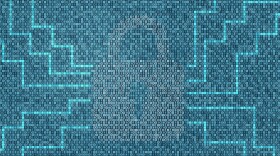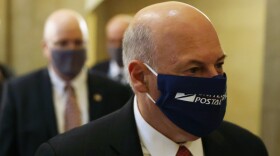
Dina Temple-Raston
Dina Temple-Raston is a correspondent on NPR's Investigations team focusing on breaking news stories and national security, technology and social justice.
Previously, Temple-Raston worked in NPR's programming department to create and host I'll Be Seeing You, a four-part series of radio specials for the network that focused on the technologies that watch us. Before that, she served as NPR's counter-terrorism correspondent for more than a decade, reporting from all over the world to cover deadly terror attacks, the evolution of ISIS and radicalization. While on leave from NPR in 2018, she independently executive produced and hosted a non-NPR podcast called What Were You Thinking, which looked at what the latest neuroscience can reveal about the adolescent decision-making process.
In 2014, she completed a Nieman Fellowship at Harvard University where, as the first Murrey Marder Nieman Fellow in Watchdog Journalism, she studied the intersection of Big Data and intelligence.
Prior to joining NPR in 2007, Temple-Raston was a longtime foreign correspondent for Bloomberg News in China and served as Bloomberg's White House correspondent during the Clinton Administration. She has written four books, including The Jihad Next Door: Rough Justice in the Age of Terror, about the Lackawanna Six terrorism case, and A Death in Texas: A Story About Race, Murder and a Small Town's Struggle for Redemption, about the racially-motivated murder of James Byrd, Jr. in Jasper, Texas, which won the Barnes and Noble Discover Great New Writers prize. She is a regular reviewer of national security books for the Washington Post Book World, and also contributes to The New Yorker, The Atlantic, New York Magazine, Radiolab, the TLS and the Columbia Journalism Review, among others.
She is a graduate of Northwestern University and Columbia University's Graduate School of Journalism, and she has an Honorary Doctorate of Humane Letters from Manhattanville College.
Temple-Raston was born in Belgium and her first language is French. She also speaks Mandarin and a smattering of Arabic.
-
As the U.S. prepares for what will likely be the largest vaccination program in its history, the Trump administration plans to loan $590 million to a Connecticut company with a novel technology.
-
Officials feared the worst on Election Day: foreign-inspired disinformation and hacking. It didn't happen. Here's how government and private cyber sleuths helped keep the system safe.
-
 CDC Report: Officials Knew Coronavirus Test Was Flawed But Released It AnywayAn unreleased CDC review obtained by NPR shows that lab officials knew an early coronavirus test kit had a high failure rate. They decided not to recall it and sent it to the nation's labs anyway.
CDC Report: Officials Knew Coronavirus Test Was Flawed But Released It AnywayAn unreleased CDC review obtained by NPR shows that lab officials knew an early coronavirus test kit had a high failure rate. They decided not to recall it and sent it to the nation's labs anyway. -
 Voter Websites In California And Florida Could Be Vulnerable To Hacks, Report FindsCyber experts told the Department of Homeland Security in July that voter registration systems in California and Florida could be vulnerable to a hack, a closely-held report obtained by NPR reveals.
Voter Websites In California And Florida Could Be Vulnerable To Hacks, Report FindsCyber experts told the Department of Homeland Security in July that voter registration systems in California and Florida could be vulnerable to a hack, a closely-held report obtained by NPR reveals. -
Despite an HHS Inspector General investigation and questions about performance, the administration has renewed TeleTracking's contract to gather COVID data from hospitals, NPR has learned.
-
 Where Are The Deepfakes In This Presidential Election?Deepfake videos haven't been a problem yet in the 2020 presidential race. It's not because they aren't a threat, but because simpler deceptive tactics are still effective at spreading misinformation.
Where Are The Deepfakes In This Presidential Election?Deepfake videos haven't been a problem yet in the 2020 presidential race. It's not because they aren't a threat, but because simpler deceptive tactics are still effective at spreading misinformation. -
The Government Accountability Office, a nonpartisan government watchdog, will review the federal government's use of nonlethal weapons and the tactics it wielded against protesters this summer.
-
D.C. military confirms to NPR that hours before federal police cleared protesters near the White House on June 1, the District's top military police officer was looking for a "heat ray" system.
-
In June, federal police cleared peaceful protesters from a park by the White House. Lawyers now say U.S. Park Police violated a settlement that set out rules for engaging mass demonstrations in D.C.
-
Postmaster General Louis DeJoy, a longtime Republican donor, controls the U.S. Postal Service at a time when mail-in voting is central to the presidential election.







